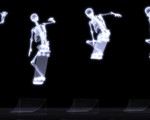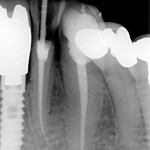
December brings two new protocols to the Cochrane Library from the Cochrane Oral Health Group. The first of these:- Liu JLY, Walsh T, Kerr AR, Lingen M, Brocklehurst P, Ogden G, Warnakulasuriya S, Scully C. Diagnostic tests for oral cancer and potentially malignant disorders in patients presenting with clinically evident lesions (Protocol). Cochrane Database of [read the full story…]








